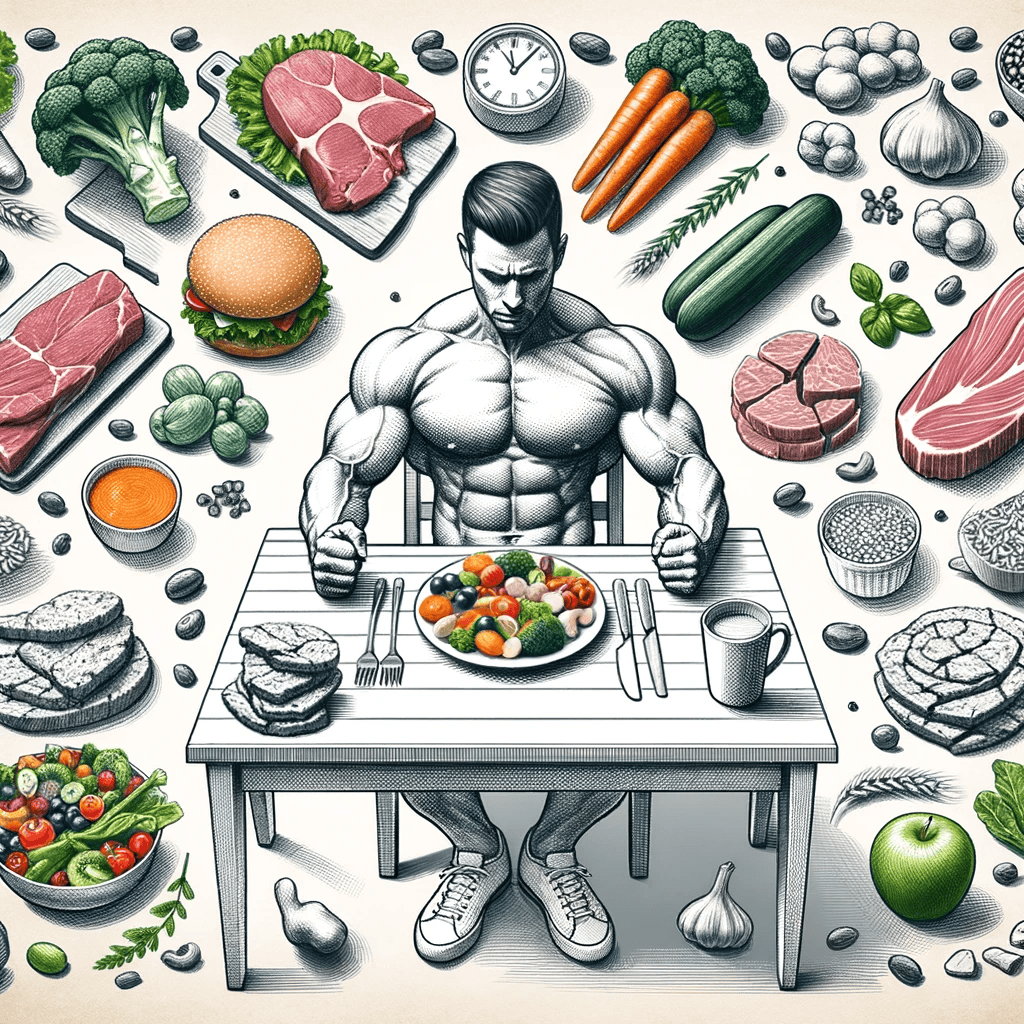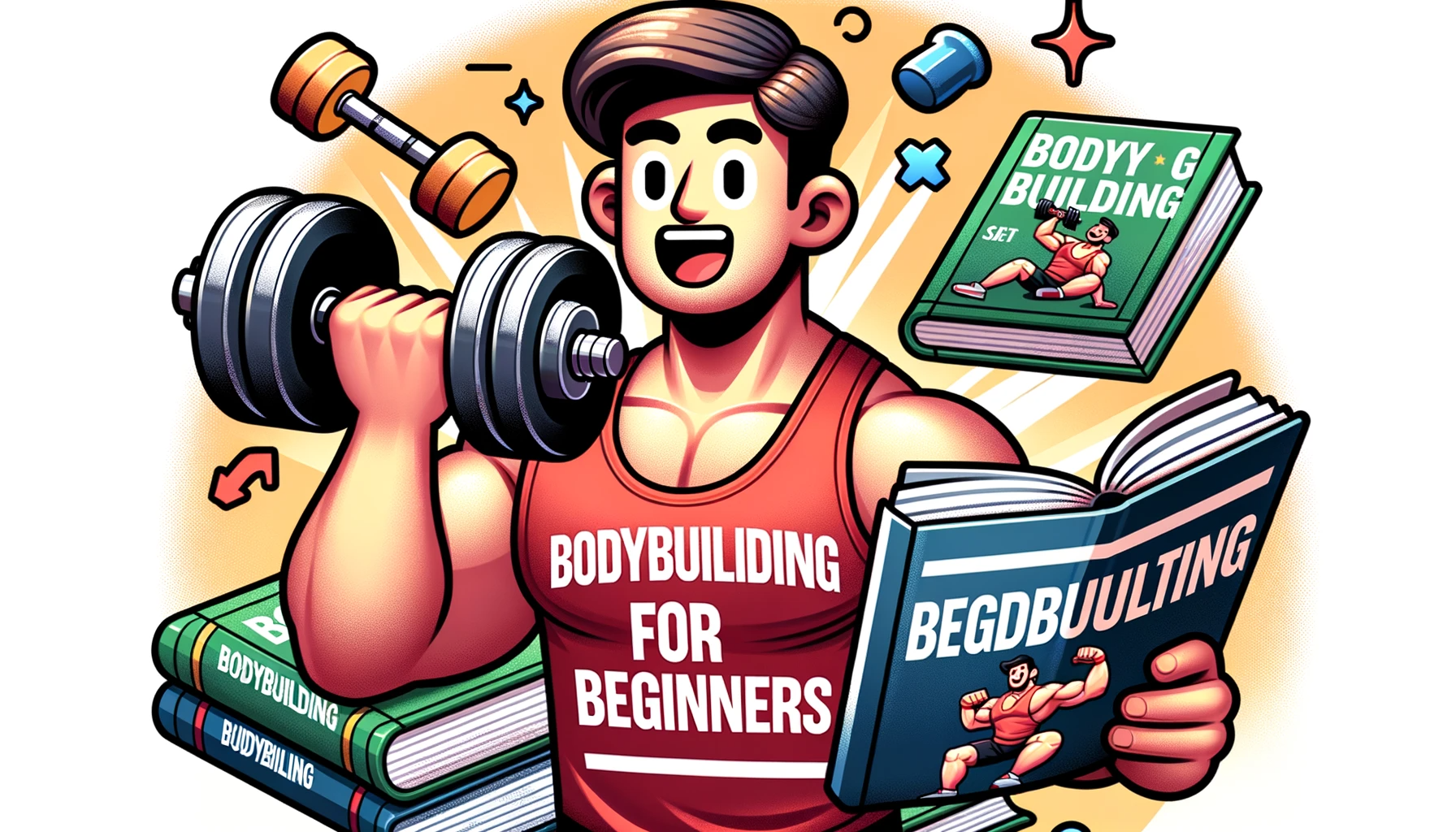So you're on a mission to gain 10 pounds of muscle and want results fast.
You've come to the right place.
This comprehensive guide is your one-stop shop for everything you need about rapid muscle gain.
Let's dive in and transform that physique of yours.
How To Gain 10lbs Of Muscle Quickly: Quick Rundown
If you're short on time, here's the gist: To gain 10 pounds of muscle, you need consistent weight training and an adequate caloric surplus.
You'll also benefit from the right supplements and recovery strategies.
Stick around for the full scoop.
The Importance Of Nutrition
You can't build a house without bricks, and you can't build muscle without proper nutrition.
- Caloric Surplus: To gain weight, consume more calories than you burn. Use a TDEE calculator to find your maintenance calories and add 300-500 calories.
- Protein Intake: Aim for about 1g per kg of body weight. Protein is essential for muscle repair and growth.
- Carbs and Fats: Don't neglect these macronutrients. They provide the energy you need to power through your workouts and recover afterward.
What It Takes To Gain That Muscle
Gaining muscle isn't just about hitting the gym hard; it's also about what you do outside of it.
Nutrition plays a pivotal role in your muscle-gaining journey.
Consistency is key here.
You can't expect to eat well for just a couple of days a week and see gains.
Aim for at least 5-6 days of consistent eating to ensure you're on the right track.
- Consistency: Eating well most of the week is crucial. Aim for 5-6 days of high caloric intake.
- Caloric Surplus: For someone who weighs around 140 pounds, a daily caloric surplus of about 500 calories would be a good starting point.
- Nutrient Timing: Nutrient timing isn't as crucial as overall caloric and macronutrient intake, but eating post-workout can be beneficial. It's an opportunity to fuel your body and aid in recovery.
A Typical Day For A 140-Pound Individual
Breakfast
- 2 eggs scrambled with spinach and a slice of whole-grain toast (~300 calories)
- A smoothie made with banana, protein powder, and almond milk (~250 calories)
Mid-Morning Snack
- Greek yogurt with a handful of almonds (~200 calories)
Lunch
- Grilled chicken breast (about 6 oz) with quinoa and steamed vegetables (~600 calories)
- An apple for added fiber and nutrients (~95 calories)
Afternoon Snack
- A can of tuna or a protein shake (~150-200 calories)
Dinner
- Baked salmon (about 6 oz) with a side of sweet potato and a green salad (~650 calories)
Post-Workout (If It's A Workout Day)
- Protein shake or a meal that includes protein and carbs (~200-300 calories)
- This is a prime opportunity to get extra calories and nutrients to aid recovery and muscle growth.
Evening Snack
- Cottage cheese or another slow-digesting protein source (~100 calories)
Total Estimated Calories: ~2450 - 2700
Sticking to a diet like this most days of the week will set you up for muscle-gaining success.
Remember, it's not about being perfect every day but rather about being consistent most of the time.
If you find that you're not gaining weight after a few weeks, it's a sign that you need to increase your caloric intake.
The Role Of Weight Training
Lifting weights is the stimulus your muscles need to grow.
- Compound Lifts: Focus on exercises that work multiple muscle groups, like squats, deadlifts, and bench presses.
- Training Frequency: Aim to hit the gym at least 3-4 times weekly.
- Rest Periods: Allow 2-4 minutes of rest between sets to maximize your performance.
Supplements: The Icing On The Cake
While not strictly necessary, the right supplements can give you an edge in the gym and recovery.
- Creatine: This is the most researched and proven supplement for increasing muscle mass and strength.
- Zinc and Magnesium: These minerals are crucial for recovery and sleep quality.
Your Step-By-Step Plan To Gaining 10 Pounds Of Muscle
The Quickest Plan: 3 Months
- Workout 5 Days a Week
- Caloric Surplus of 500 Calories
- High Protein Intake
- Supplements: Creatine, Zinc, Magnesium
- Weekly Weigh-ins
The Moderate Plan: 4 Months
- Workout 4 Days a Week
- Caloric Surplus of 400 Calories
- Moderate Protein Intake
- Supplements: Creatine
- Bi-weekly Weigh-ins
The Slow And Steady Plan: 6 Months
- Workout 3 Days a Week
- Caloric Surplus of 300 Calories
- Lower Protein Intake
- Supplements: Optional
- Monthly Weigh-ins
The Lazy Plan: 8+ Months
- Workout 2 Days a Week
- Caloric Surplus of 200 Calories
- Protein: Not a Focus
- Supplements: None
- Track Progress When Convenient
Time Frame Expectations
- Quickest: Expect to gain 10 pounds in about 3 months. However, be prepared for some fat gain along with muscle.
- Moderate: This 4-month plan offers a balanced approach, allowing for muscle gain with minimal fat.
- Slow and Steady: If you opt for the 6-month plan, you'll gain mostly muscle with very little fat.
- Lazy: The 8+ month plan will yield varied results and is not recommended if you're serious about muscle gain.
Expert Recommendations On Rapid Muscle Gain
Common Themes Across Experts
- Caloric Surplus: Almost universally, experts agree that a caloric surplus is essential for muscle gain. The surplus ranges from 250 to 500 calories above your daily maintenance level.
- Protein Intake: The importance of protein is another point of consensus. The recommended amount varies but generally falls around 1g per kg of body weight.
- Compound Lifts: Experts often recommend compound lifts like squats, deadlifts, and bench presses as they work multiple muscle groups and offer the most bang for your buck.
- Consistency: Whether it's your diet or your workout routine, consistency is key. Most experts suggest working out at least 4-5 days a week.
- Supplementation: Creatine is the most commonly recommended supplement for muscle gain, followed by essential minerals like zinc and magnesium for recovery.
Points Of Divergence
- Workout Splits: Some experts recommend full-body workouts, while others advocate for daily split routines targeting different muscle groups.
- Cardio: Opinions on incorporating cardio vary. Some say it's essential for heart health, while others argue it can hinder muscle gain.
- Rest Periods: The recommended rest period between sets varies from 1 to 4 minutes, depending on the expert and the lift type.
Our Recommendations
For natural lifters, focus on a balanced approach that includes a moderate caloric surplus, adequate protein intake, and a workout routine centered around compound lifts.
Consistency in both diet and exercise is crucial.
Creatine is the go-to supplement, with zinc and magnesium beneficial for recovery and sleep quality.
For those using steroids, it's important to note that your body will respond differently, and you may be able to gain muscle more quickly.
However, the risks associated with steroid use make it a less advisable path.
By adhering to these principles, you're setting yourself up for the quickest, most sustainable muscle gains.
Remember, it's not just about working hard but also working smart.
If you've been struggling to put on muscle and see yourself as a hardgainer, don't fret.
There's a specialized workout plan designed just for you.
The Hardgainer Workout Plan is a comprehensive guide that focuses on compound lifts and progressive overload to help you gain muscle mass as quickly as possible.
Common Problems And Solutions
- Problem: I'm not gaining weight.
- Solution: You're likely not eating enough. Increase your caloric intake.
- Problem: I'm gaining too much fat.
- Solution: Cut back on the calories slightly and focus on cleaner foods.
- Problem: I'm not seeing muscle definition.
- Solution: Be patient. Muscle definition comes with time and lower body fat percentages.
FAQs
How long will it take to gain 10 pounds of muscle?
Expect to gain around 10 pounds in 3-4 months with consistent training and eating.
Do I need to take supplements?
Supplements like creatine can help, but they're not essential. Focus on whole foods first.
How many calories should I eat daily?
Use a TDEE calculator and add 300-500 calories for muscle and weight gain.
How much protein do I need?
Aim for about 1g of protein per kg of body weight, which can easily be met with whole foods.
What are the best exercises for muscle gain?
Compound lifts like squats, deadlifts, and bench presses are most effective for muscle gain.
How much rest do I need between sets?
Aim for 2-4 minutes of rest between sets to maximize weight lifting.
How often should I work out?
Aim for at least 3-4 days a week of strength training.
What should I eat post-workout?
Focus on a balanced meal rich in protein and carbs to fuel muscle recovery.
How do I track my progress?
Use weekly weigh-ins and monthly measurements to track your muscle and weight gain.
What if I'm not seeing any gains?
Reevaluate your caloric intake and workout routine, and make adjustments as needed.
Do I need to hire a trainer?
No, this guide provides all the information you need.
Bottom Line
Gaining 10 pounds of muscle is entirely achievable with the right strategy.
Consistency is your secret weapon, both in the gym and the kitchen.
With a well-planned diet, a solid workout routine, and a dash of perseverance, you're well on your way to a stronger, more muscular you.





 About FitFrek
About FitFrek